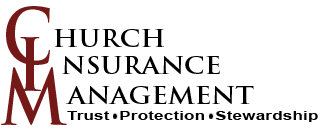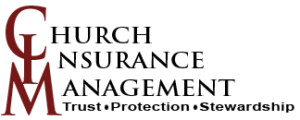Many churches conduct their work with limited funding, and some rely on volunteers to perform key roles. When you review and discuss internal controls church leaders are often surprised to learn that small improvements can go a long way in preventing theft of assets and unsubstantiated spending, two of the most common types of fraud in not-for-profits.
These small steps cost your church nothing and can make a big difference in preventing church fraud:
1. Send the unopened bank statement to a church employee/member who does not have check signing authority, and make sure they know how to properly review it. Take the case of a small church with poor internal controls. They discovered the bookkeeper had been using the church’s funds for personal purposes, rationalizing that he would pay them back at some point. Since he reconsiled the bank statements he was able to hide the theft for months. If the bank statements and disbursements, along with the cleared checks, had been reviewed properly, these issues would have been detected immediately.
2. Increase controls over credit cards to prevent unauthorized spending. Not all churches use credit cards, but inappropriate spending on credit cards is a common type of church fraud. Be sure someone is responsible to check the credit card statements each month. Verify the balance due, the payment due and verify the payment just made. Make sure all old cards and accounts are closed. Be sure terminated employees and volunteers who no longer serve in key financial positions no longer have access to church credit cards.
3. Enlist one member of Church management to hold the organization accountable for its spending. Some churches do not have the funding for excess or surplus spending. However, someone should still be responsible to review the church’s spending habits. With no one to review spending, areas such office supplies can increase beyond the budget. There should be a thorough review of all spending by the governing committee. They should ask questions about budget, financial statements and future expenditures.
4. Prevent mishandling of donations. If your church receives contributions each week intended for specific spending areas inside your church (Building fund or the local Food Pantry for example) have two volunteers document the donations intended purpose. Having a single person document these donations could result in the funds being directed to the wrong account where oversight may not be as close.
5. If possible, require a mandatory one week vacation for those involved in financial functions. Cross-train staff to ensure that others can fulfill absent employee/volunteer duties while they are away. Oftentimes, fraud is uncovered when an individual is unable to cover his or her tracks. This recommendation is not an HR policy but rather an internal control that allows for detection of fraudulent activity in the absence of the employee. For example, fraud can be uncovered when another employee assumes the task of reconciling bank statements and finds unauthorized, fraudulent disbursements. It’s ok to be suspicious of anyone who refuses to cooperate.
Summary
The best way to mitigate fraud risk is to create a strong internal control system. As Church Leaders it is crucial that you exercise professional skepticism in your leadership responsibililties. You must carefully observe and question financial information to strengthen controls at your Church so that your mission is what make the headlines, not the fraudulent activity taking place behind closed doors.
For assistance with your program or to learn more about the services Church Insurance Management can offer your religious organization, please contact us at epolitte@churchinsurancemanagement.com
Thanks to Dawn Dees, CPA, Senior Auditor, Stancil & Company for help with these valuable tips.



